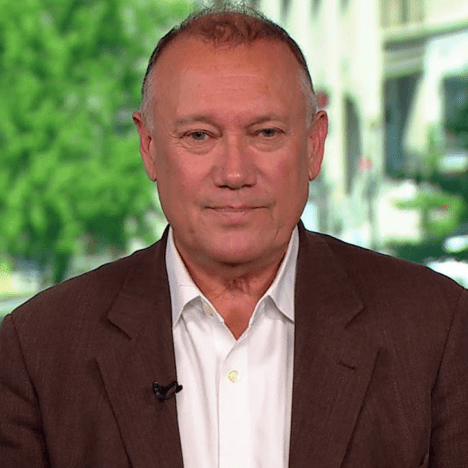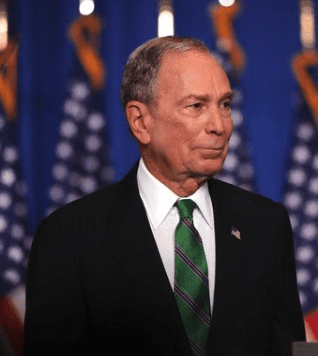One of the unwritten parts of the CBC's mandate is the conjuring of phantoms to scare Canadians into supporting the status quo. The more obscure the phantom, and the less likely it is to actually threaten Canadians, the better, because then they don't actually have to research it.
The obsessive focus on "disinformation", the attempts to elevate anti-blockade forces into a national pandemic of white supremacy, and of course, the breathless coverage of US politics to the exclusion of Canadian issues. CBC devotees can pick out every error in six Breitbart stories before breakfast, and that is all to the good, but when it comes to barely readable rush jobs like this recent offering from Keith Boag on the spooky, scary "dirtbag left" supporting Bernie Sanders, they lap it up without question.
Boag's Old Man Yells At Cloud diatribe in which he admits in the second sentence that this whole concept is over his head, and likely those of his readers too may have been rendered moot by Sanders' underperformance on Super Tuesday, and will likely disappear into the ether. But in reading about this fantasy world, where people are being rude online because of politics, we forget to ask the question of what relevance this has to Canadians. Why was Keith Boag compelled under duress to do a book report about this subject and present it on CBC.ca? Because the overlords fear a plague of incivility amongst Canada's disaffected millennials more than they do the coronavirus and they have no reason to.
I admit to having no particular love for angry leftists, but I dislike obvious attempts to lead readers to conclusions they don't need to draw even more. The sad truth is that the left in this country is too focused on being nice to pull off anything like what the Sanders campaign is trying to do to the Democratic Party.
I hate to be the one to point this out, but the purpose of a political revolution is to replace the elites and institutions in a country. This is what the far-left in Canada should be pushing. But instead of "Canada is broken," they push "Canada is fake," and really, what is the point of a revolution in a fake country?
The dirtbag left, for all of Boag's sneering, believes what they believe honestly. In this respect they have their act together better than the Liberals, who have no beliefs except the idea that they are always right and always entitled to power. Whatever passes for Canada's right have no principles or beliefs, but they at least have a goal obtaining and maintaining power (for a few years). Canada's left has no beliefs, principles or goals. It's just kind of there. Occasionally it has an interesting point about concentrations of wealth, but the idea that it's actually going to DO anything about those concentrations of wealth is hilarious. This is why they frequently get angrier about alleged coups in Venezuela than anything taking place within their own borders.
Somehow, the Canadian left has managed to delude itself into thinking that it can effect massive social change without guillotining those standing in the way of social change. That supporting labour pushbacks against Doug Ford or Jason Kenney won't simply perpetuate the cycle of a conservative government getting elected every 20 years, trying and failing to enact "austerity", and then losing to the Liberals. They think that conservatives are just misled and misinformed, and all they have to do is remove the sources of misinformation and then Peter MacKay, Erin O'Toole, and Ezra Levant will join their brothers and sisters on the picket line and sing "Solidarity Forever."
No other left wing party in the world believes this, mostly because their supporters wouldn't let them believe it. And so instead of a proper left wing party, we have a group of cosplayers. They do not believe in their own left-wing nonsense enough to be rude to people. Liberals defending Trudeau are more willing to drop the gloves and fight for what they believe in. Ironically, those CBC worshippers have more in common with the dirtbag left than they know, because they at least can be motivated to attack a target!
Photo Credit: You Tube
Written by Josh Lieblein








